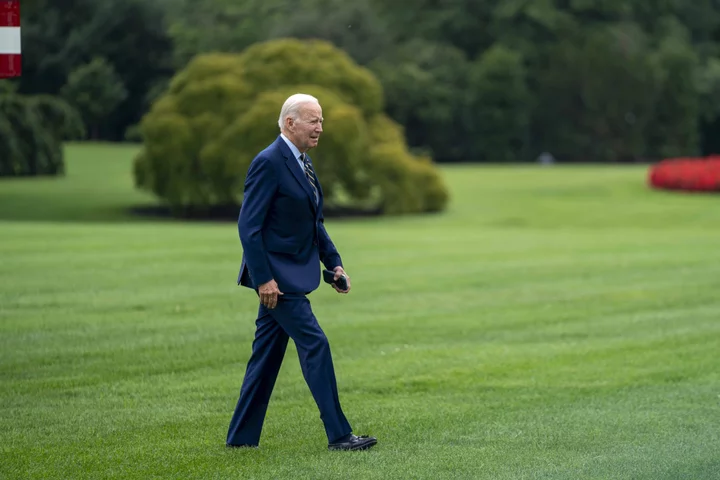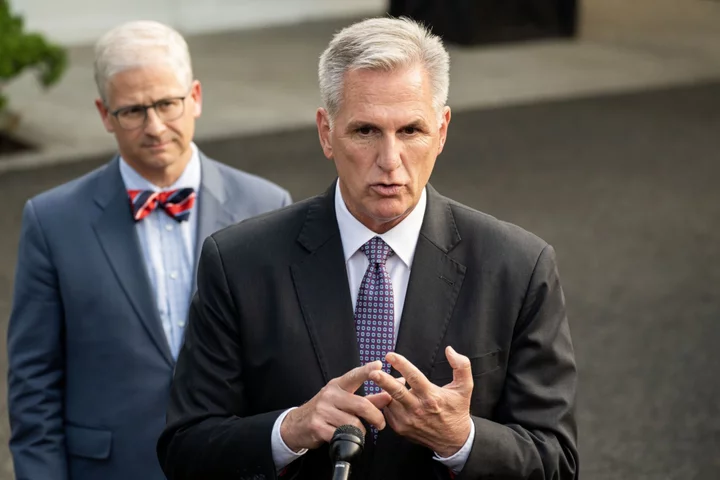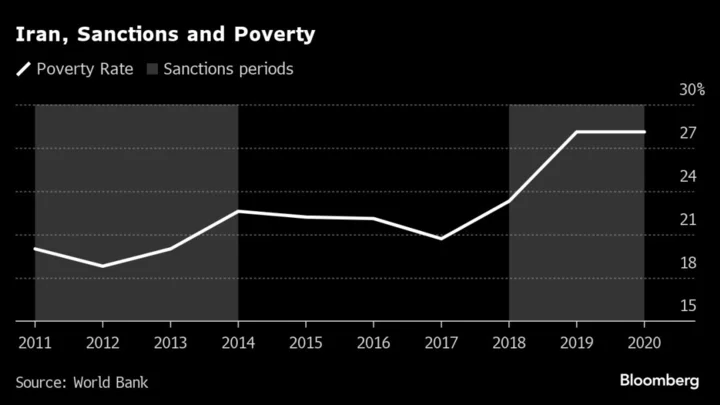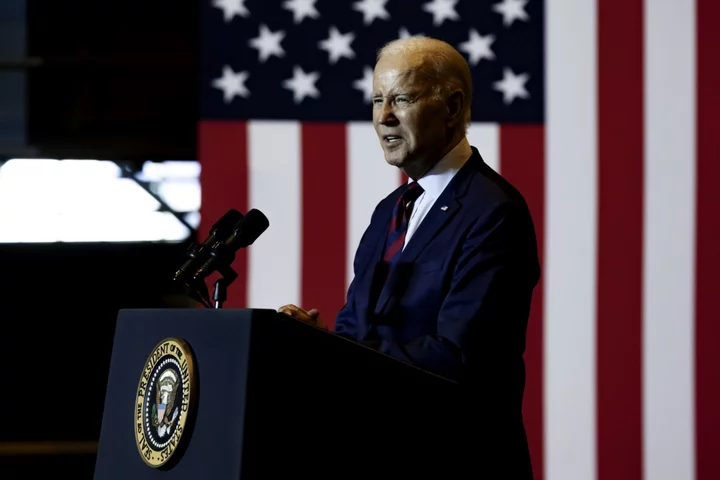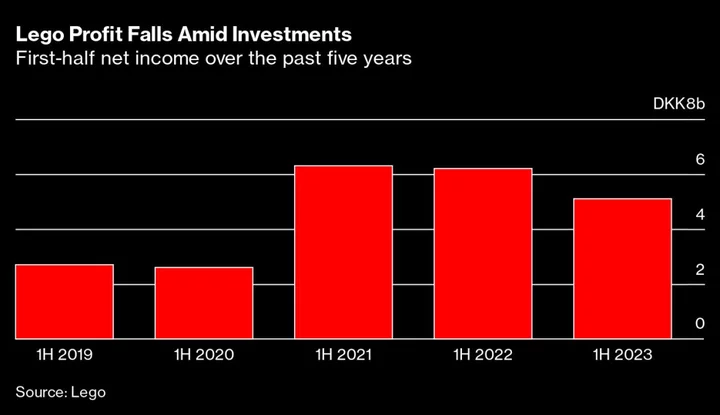President Joe Biden set up a clash with House Republicans by asking lawmakers to approve billions more dollars for Ukraine’s defense, further straining the ability of Congress to avoid a government shutdown Oct. 1.
The White House sees the $13 billion in funding for Ukraine war costs, which came in a $40 billion supplemental spending request, as critical to sustaining the war effort against Russia as the conflict enters a more intense phase. But Republican opposition to the aid has grown as conservatives have railed against US involvement in the war.
The House will not rubber stamp Biden’s request and will scrutinize it carefully, an aide to Speaker Kevin McCarthy said.
“The answer needs to be NO!,” Republican Representative Lauren Boebert of Colorado said on X, the social media platform formerly called Twitter. “We’ve done more than enough and none of this money is even being audited.”
The package designates $24 billion for Ukraine and related international emergencies, including $9.5 billion to send military equipment to Kyiv and to replenish Defense Department stocks, according to a White House fact sheet.
Continued military, intelligence and other support would cost another $3.6 billion while $11 billion is set aside for economic, humanitarian and development aid. The additional $8.5 billion economic and humanitarian request includes $200 million in aid to African counties besieged by Russia’s Wagner Group mercenaries.
The defense assistance is designed to last through the end of the first quarter of next year, according to a senior administration official who briefed reporters on the plan.
Failure to approve Ukraine funding would mark a watershed moment for the US almost 18 months after the war started. Congress has passed Ukraine assistance packages on three separate occasions, most recently last December, without much controversy.
It would also shake the transatlantic coalition Biden helped assemble to provide arms and training for Ukraine’s military that have proved crucial to Kyiv’s efforts to prevent Russian forces from overtaking the country.
Top Senate Republicans appeared more open to the request. Minority Leader Mitch McConnell on Wednesday defended Ukraine aid during remarks in Louisville, Kentucky, saying it helps fund new equipment for the military.
“I look forward to carefully reviewing the Administration’s request to make sure it is necessary and appropriate to keep America safe, secure our borders, support our allies, and help communities rebuild after disasters,” McConnell said in a statement Thursday.
Bipartisan support for Ukraine aid has held steady in the US Senate, but the funding has become controversial in the House, where McCarthy has promised not to bring an assistance package to the floor if it skirts defense-spending caps set in the May debt-ceiling agreement.
Conservative lawmakers remain furious with the terms of that deal and have said they will not support more funds for Kyiv without strings attached. Others fundamentally oppose assisting Ukraine’s war effort. Last month, 70 House Republicans — almost one-third of the GOP conference — voted to cut off aid entirely.
Read more: House Conservatives Threaten to Shut Down Homeland Security
The request for Ukraine funding was attached to $12 billion in extra disaster-relief funding, which could help smooth passage of the overall package. There is also a request for $60 million in pay for firefighters from federal agencies that have battled blazes this wildfire season, and who face a looming funding shortage.
FEMA projects that its current disaster relief fund balance of $6.4 billion will be used up by the end of the current fiscal year because of catastrophic disaster spending, resulting in a $4.3 billion deficit by Sept. 30.
The $12 billion is intended to last through the end of fiscal year 2024, according to a senior administration official, and was calculated based on estimates of immediate and long-term needs for disaster recovery.
Biden said Wednesday he would rush federal support to Hawaii after deadly wildfires tore through the island of Maui.
Read more: Biden Vows to Rush Federal Support to Wildfire-Ravaged Hawaii
The request also includes $4 billion for border security and migration mitigation. It does not include funds to speed up weapons transfers to Taipei amid an increased threat from China, despite rumblings that it might.
Senate Democratic leader Chuck Schumer cited strong bipartisan support in that chamber for the supplemental funding request, which he said “should send a clear signal to Vladimir Putin, the Chinese government, and others of America’s resolve when it comes to defending democracy around the world.”
The House returns from its August recess on Sept. 12, when it will have to grapple with the supplemental request as well as an overall government funding measure for the next fiscal year. Deep divisions between the House and Senate — as well as Democrats and Republicans — over discretionary spending levels have raised the risk of a shutdown when funding expires Sept. 30.
Congress in December passed $45 billion in additional funding for Ukraine’s war effort that was meant to last through the fiscal year ending next month. Lawmakers previously approved $40 billion in May of 2022 and $13.6 billion in March 2022, for a total of $98.6 billion so far.
(Adds reaction from Republican leaders, starting in third paragraph)

